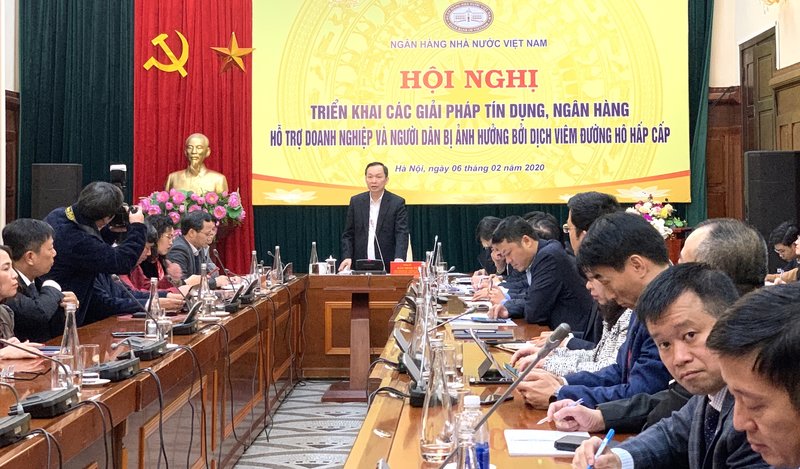Vietnam banks pledge to support business sectors hit by nCoV
The central bank is willing to support liquidity for credit institutions, if needed, as they start providing financial support for the economy.
Representatives of banks in Vietnam said they are committed to supporting enterprises and customers hurt by the new coronavirus (nCoV) outbreak, by lowering interest rates and restructuring debt maturities, among other measures, the governmental portal reported.
| Overview of the meeting. Source: VGP. |
The move was in response to a proposal by the State Bank of Vietnam (SBV), the country’s central bank, in a meeting on February 6 discussing measures to support the economy hit by the epidemic.
Vice Governor of the SBV Dao Minh Tu said the bank is willing to support liquidity for commercial banks if needed, while lenders should be proactive in offering respective supporting programs to enterprises and individuals, particularly those operating in the fields of tourism, agriculture and trade.
Pham Toan Vuong, vice general director of Agribank, said Agribank is evaluating the extent of damage on its customers, both direct and indirect. The lender has hundreds of millions of US dollars available to provide loans with preferential interest rates for enterprises.
Vietcombank’s CEO Pham Quang Dung said it is estimated that over 50% of Vietnamese goods and products are affected by the outbreak, including 15% with major impacts if the epidemic persists in long period.
However, as current regulations only provide guidance for debt restructuring in the agricultural sector, banks need more specific instructions from the SBV to deal with enterprises in other sectors.
Regarding this issue, SBV’s Vice Governor Tu said the SBV would address this issue within two weeks.
Right time to promote cashless payment
SBV Vice Governor Tu urged the people should refrain from using cash to prevent the spread of the outbreak and shift to online banking services.
Vice General Director of SHB Ninh Thi Lan Phuong said this is the right time to promote non-cash transaction and online banking.
To engine such moves, SHB is lowering costs for e-wiring and e-banking services for logistics and trading firms, said Phuong.
As of present, some 90% of daily transactions in Vietnam are conducted in cash, however, Vietnam does not have sufficient instruments to sterilize cash, which could lead to delay and disruption in transaction.
The SBV is instructing banks in provinces/cities to inject new bank notes into circulation, while the old notes returned would be put into quarantine for an appropriate period of time.
SBV Vice Governor Tu hinted at the possibility of expanding the value limit for online transactions to meet needs of customers at the moment.













